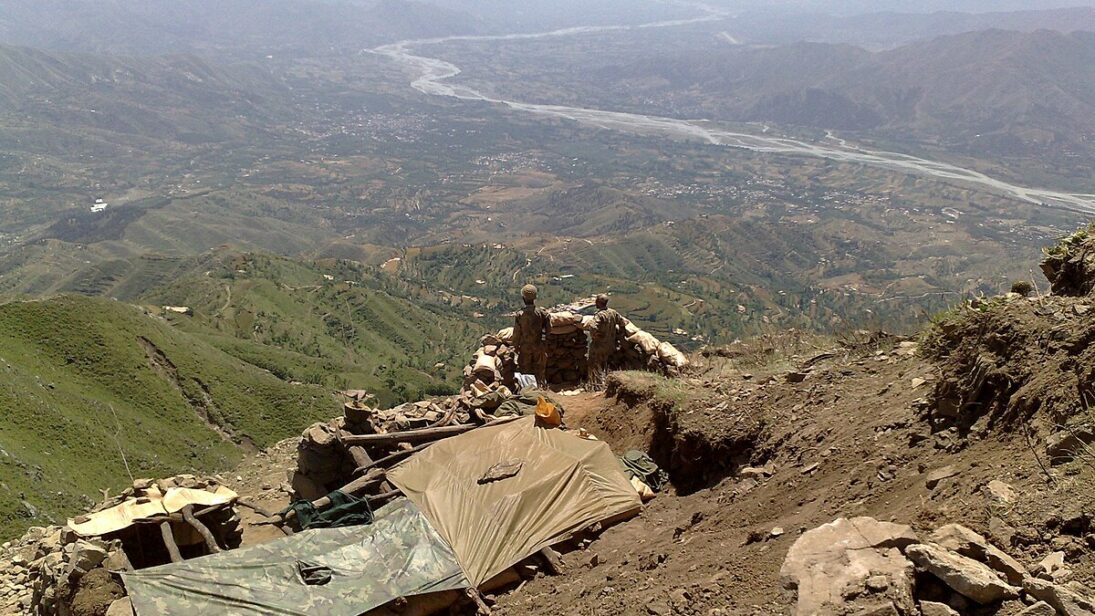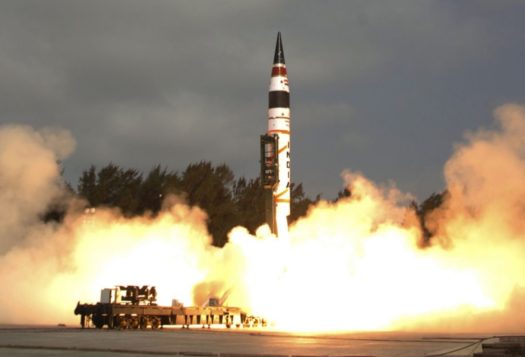
When the Afghan Taliban took power in Kabul following the U.S. withdrawal from Afghanistan in August 2021, much of the international political agenda was dominated by concerns over the potential resurgence of terrorism and extremism. Primary security concerns related to the Islamic State of Khorasan Province (ISKP), who most vociferously demonstrated their growing capabilities by attacking the Kabul airport amidst the withdrawal. Since then, the group’s capabilities have grown, posing significant security challenges for Pakistan, Afghanistan, and other neighboring states.
On July 30, 2023, ISKP attacked a Jamiat Ulema Islam-Fazl (JUI-F) workers’ convention in the Bajaur district of Khyber Pakhtunkhwa (KP), killing at least 54 people. ISKP claimed responsibility for this attack through Amaq and Nashir, its official news outlets. ISKP’s emergence poses a significant threat to regional security and ongoing efforts to address terrorism and extremism in Pakistan.
Ideological and sectarian conflicts, along with the personal interests and dynamics of revenge, have created a spiral of terrorist violence that is deteriorating regional security. While the threat from Tehreek-e-Taliban Pakistan (TTP) cannot be disregarded, ISKP’s growing influence will undeniably challenge policymakers in Islamabad in the coming years, especially amidst navigating multiple internal challenges.
A Different Threat
ISKP’s organizational trajectory has evolved and can be divided into two phases: from 2015 to late 2019 and from 2020 onwards. During the first phase, ISKP’s activities revolved around gaining territory while consolidating its control in eastern, northeastern, and northern Afghanistan. Territorial gain enabled ISKP to implement their interpretation of Sharia law, which contradicted the Taliban’s ideology. This campaign failed, however, as the organization ran out of economic resources to manage such territorial control, coupled with Afghan forces’ air campaign and the subsequent offensive launched by the Taliban to root out ISKP.
ISKP differs in ideology, ethnic composition, and self-imposed geographical limitations from the Afghan Taliban and other regional extremist groups.
ISKP re-emerged in late 2019 and 2020 with a new operational agenda of “urban warfare” under their new Emir Shahab al-Muhajir. This strategy comprised direct killings of not just the Taliban but other factions in Afghanistan—especially Shia Muslims and Hazaras—to erode the Afghan Taliban’s legitimacy in the country.
ISKP differs in ideology, ethnic composition, and self-imposed geographical limitations from the Afghan Taliban and other regional extremist groups. ISKP’s activities are rooted in their Salafi Takfeeri ideology (inspired by the late Abu Bakar Al Baghdadi), which clashes with the Taliban, JUI-F, and the entire Deobandi sect of Islam. ISKP propagates these competing ideologies as impure, superstitious, and idolatry, which leads to variances in their geographical scope, ethnic composition, and nature of attacks.
Geographically, ISKP has a broader global agenda of establishing an “Islamic Caliphate,” whereas the TTP and Afghan Taliban have more localized aims. The TTP claims to be an extension of the Afghan Taliban, aiming to establish a political system according to their interpretation of Sharia in Pakistan, with the group’s geographical scope limited to Pakistan and Afghanistan. Unlike other groups, however, ISK-P’s globalist ambitions can directly threaten international peace and security.

Moreover, ISKP is more ethnically and internationally diverse than the TTP or the Taliban. Unlike the largely ethnically homogenous Afghan Taliban, for instance, ISKP’s leadership comprises former TTP fighters, resentful Afghan Taliban members, and foreign militants. ISKP also diverges from other groups in their attacks. For instance, the TTP mainly targets the Pakistani government and security forces while redirecting their fighters away from civilian and religious sites. In contrast, ISKP engages in indiscriminate urban warfare, especially targeting religious minorities.
ISKP’s Activities in Pakistan
ISKP’s activities across Pakistan have grown in the last three years. Their first attack dates back to August 2016, when ISKP attacked a hospital in Quetta, killing over 72 people. Baluchistan and Sindh were then targeted in subsequent years. After 2018, the group increased its foothold in other provinces. In November 2018, ISKP attacked a local market in Kalaya, a Shia-populated area in KP’s Orakzai district. The attacks in Pakistan, however, decreased by the end of 2019 as ISKP began fighting the Afghan Taliban offensive. During the same period, ISKP was divided into branches in Afghanistan, Pakistan, and their neighboring areas.
At this point, ISKP in Pakistan was known as the Islamic State’s Pakistan Province (ISPP), an independent network formally split with ISKP in May 2019. From 2019 to 2022, ISPP claimed 68 attacks. ISPP attacks were minor compared to the strategies of ISKP aimed at mass causalities. For example, in 2019, when ISPP had a presence in KP, the number of attacks in the province was 7, but after ISKP developed a foothold ahead of ISPP, the attacks increased to 28 in 2021 and 47 in 2022. To date, ISKP has claimed 17 attacks in 2023. The Center for Strategic and International Studies projects 28 attacks for the remainder of the year.
ISKP’s recent surge may aim to attract militants from other organizations and strengthen its foothold in Pakistan.
Looking Ahead
ISKP’s threat to Pakistan must not be underestimated, considering the growing terrorism incidents in the country. ISKP’s recent surge may aim to attract militants from other organizations and strengthen its foothold in Pakistan. The primary target would be members of TTP, who are hardliners and oppose TTP’s negotiations with Pakistan. ISKP blamed TTP for abandoning the Jihadist Agenda when it reached a cease-fire in December 2021. Many TTP members opposed such negotiations and joined ISKP. The same scenario occurred with the Afghan Taliban, whose members joined ISKP after the 2020 U.S.-Taliban peace talks.
ISKP’s rise has further compounded existing challenges that Pakistan grapples with. Firstly, in the context of TTP, the government has been able to carry out substantial rounds of negotiations, which appears to be non-existent in the case of ISKP. The group is unwilling to engage in meaningful negotiations because of its extremist ideology and lack of centralized leadership. Secondly, the animosity between TTP and ISKP could have benefited Pakistan, but the reality contradicts such expectations. The Afghan Taliban and TTP’s fight against ISKP constrained the group’s footprint in Pakistan, but currently, the situation is different. ISKP’s public messages consistently show a soft corner for TTP compared to the Afghan Taliban and Pakistan government. This nexus could be lethal in South Asia and beyond. Relations between Pakistan and Afghanistan have deteriorated due to the blame game over which country harbors ISKP, exacerbating the threat posed by these extremist entities.
Conclusion
Ongoing negotiations between the Pakistani government and TTP provide more space for ISKP and ISPP to carry out their activities. TTP’s demand for less military presence in tribal areas could increase exploitation by groups like ISKP and facilitate terrorism in Pakistan. If the group decides to increase suicide bombings in Pakistan to target more urban civilian centers, sectarian religious sites would be an appealing target. Upcoming elections in Pakistan provide another opportunity to conduct high-profile attacks. Policymakers in Pakistan should seriously consider this threat while taking pre-emptive measures to tackle ISKP’s security challenge.
Also Read: ISKP’s Propaganda Threatens Asia’s Security Apparatus
***
Click here to read this article in Urdu.
Image 1: Pakistani Military at Baine Baba Ziarat via Wikimedia Commons.
Image 2: Fazlur Rehman, leader of JUI-F via Wikimedia Commons.


